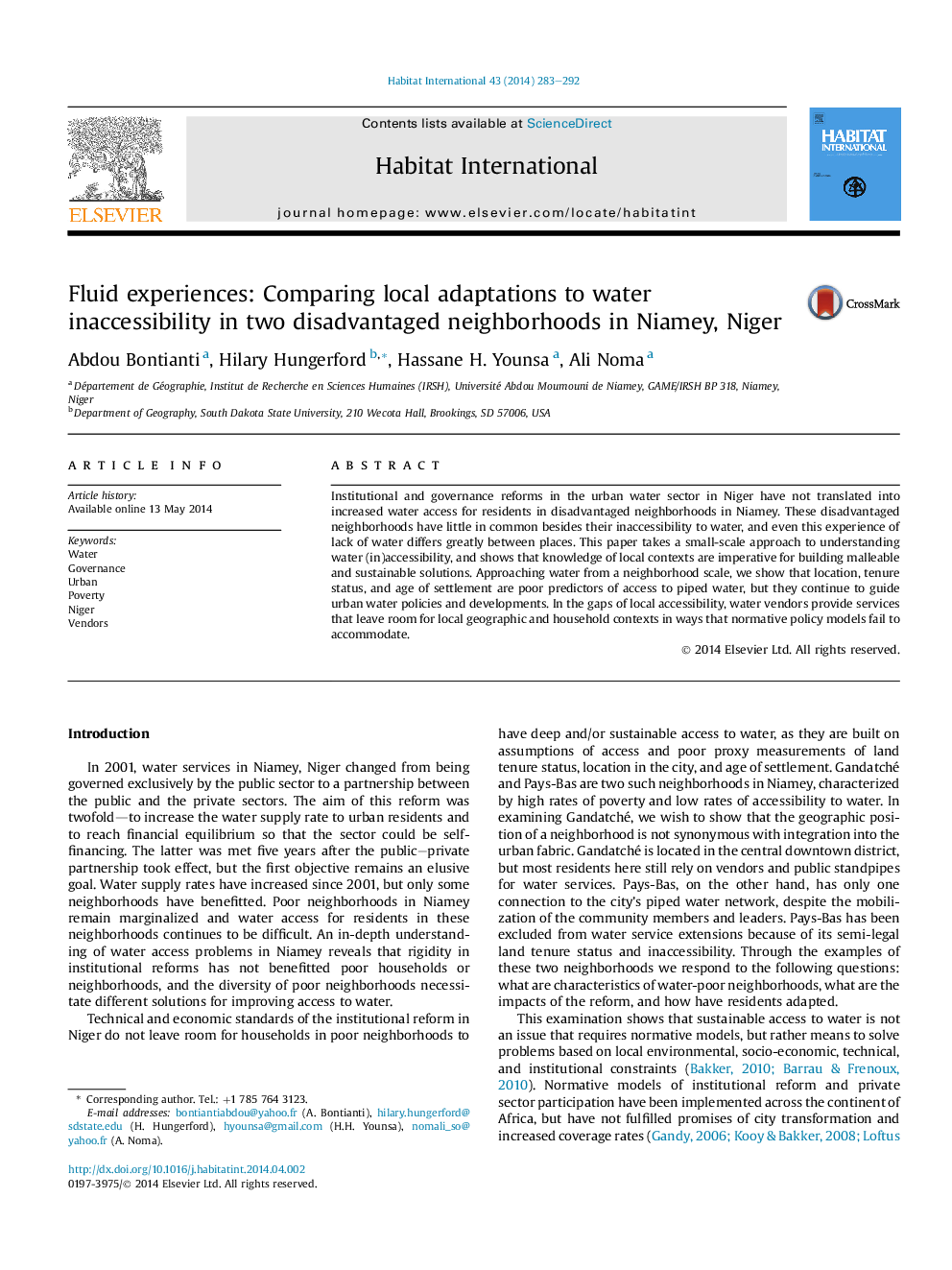| Article ID | Journal | Published Year | Pages | File Type |
|---|---|---|---|---|
| 7456393 | Habitat International | 2014 | 10 Pages |
Abstract
Institutional and governance reforms in the urban water sector in Niger have not translated into increased water access for residents in disadvantaged neighborhoods in Niamey. These disadvantaged neighborhoods have little in common besides their inaccessibility to water, and even this experience of lack of water differs greatly between places. This paper takes a small-scale approach to understanding water (in)accessibility, and shows that knowledge of local contexts are imperative for building malleable and sustainable solutions. Approaching water from a neighborhood scale, we show that location, tenure status, and age of settlement are poor predictors of access to piped water, but they continue to guide urban water policies and developments. In the gaps of local accessibility, water vendors provide services that leave room for local geographic and household contexts in ways that normative policy models fail to accommodate.
Related Topics
Social Sciences and Humanities
Social Sciences
Development
Authors
Abdou Bontianti, Hilary Hungerford, Hassane H. Younsa, Ali Noma,
